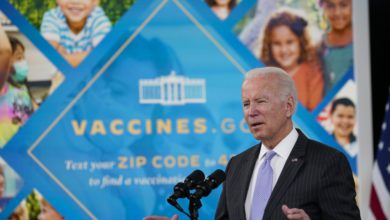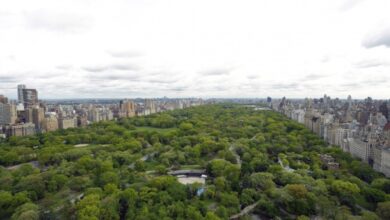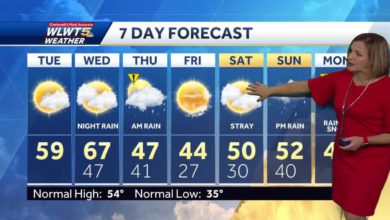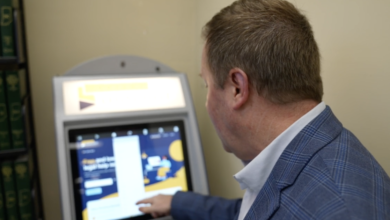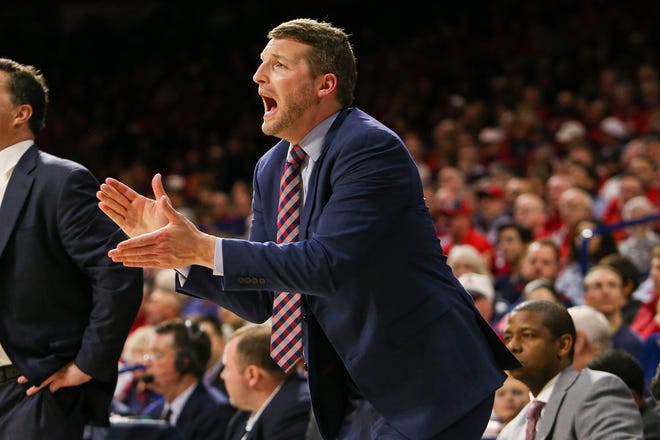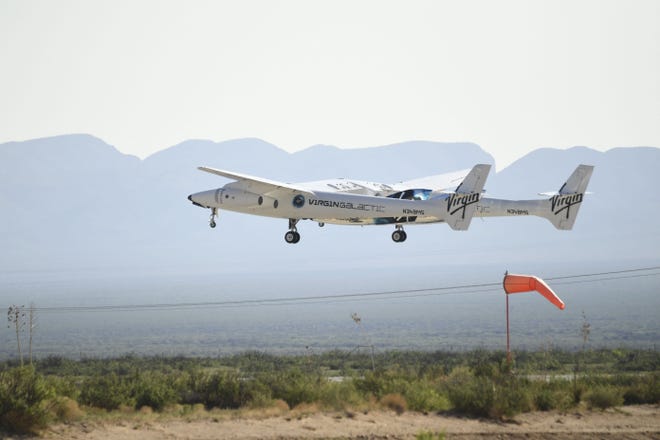
- Richard Branson was accompanied by two pilots and three mission specialists.
- Branson, who turns 71 in a week, had originally planned the flight for later this summer.
- Virgin Galactic has plans for two more test flights before commercial service begins in 2022.
TRUTH OR CONSEQUENCES, N.M. – Billionaire entrepreneur and adventurer Richard Branson's dream of space travel was realized and celestial tourism took a leap forward Sunday as Virgin Galactic's rocket ship reached the edge of space during a historic flight from Spaceport America.
Branson and his crew experienced about four minutes of weightlessness before their space plane smoothly glided to a runway landing. The entire trip, delayed 90 minutes because of bad weather the previous night, lasted about an hour. An ecstatic Branson hugged family and friends who greeted him after landing.
"It was just magical," Branson said. "It's 17 years of painstaking work, the occasional horrible down – and large ups with it. And today was definitely the biggest up."
Branson, who turns 71 this week, and a crew of two pilots and three mission specialists were carried to an altitude of more than eight miles by the aircraft VMS Eve, named after Branson's mother. Live video then showed the space plane VSS Unity release from between the mother ship's twin fuselages, using rocket power to fly to the boundary of space, more than 50 miles above the Earth.
Tributes – and criticism – rolled in on social media.
"Congrats to @richardbranson & the entire team @virgingalactic!," tweeted Gen. Jay Raymond, chief of space operations for the U.S. Space Force. "Your years of hard work & dedication paid off today with a flawless flight to the edge of Space."
Vermont Sen. Bernie Sanders was less impressed: "Here on Earth, in the richest country on the planet, half our people live paycheck to paycheck, people are struggling to feed themselves, struggling to see a doctor – but hey, the richest guys in the world are off in outer space! Yes. It's time to tax the billionaires."
You could win a trip on the same Virgin Galactic space plane that flew Richard Branson to space
Branson, a brash, charismatic London native who founded Virgin Atlantic Airways in 1984 and Virgin Galactic 20 years later, had planned the flight for later this summer. He moved it up after competitor Blue Origin and its founder, Jeff Bezos, announced plans to ride their rocket into space from West Texas on July 20.
Blue Origin, which in recent days has launched a social media campaign disparaging of Virgin Galactic, softened its tone in the hours before the flight, tweeting: "Wishing you a great flight tomorrow @virgingalactic!"
After the flight, Bezos tweeted: "@richardbranson and crew, congratulations on the flight. Can’t wait to join the club!"
In keeping with Branson's reputation as a showman, The Late Show's Stephen Colbert was hosting Virgin Galactic's livestream of the event. R&B singer-songwriter Khalid performed his new song "New Normal" on stage after Branson and his entourage returned to Earth.
Virgin Galactic has plans for two more test flights before commercial service is expected to begin in 2022. The company says more than 600 people already have signed up for flights at an estimated $250,000 per person.

Branson announced that Charity fundraising platform Omaze is giving away two tickets for one of the VSS Unity’s first commercial flights. The winner and one guest are set to be among the first everyday citizens to travel aboard a spacecraft.
The sweepstakes are open through Aug. 31, and donations will support the nonprofit Space for Humanity, which aims to send citizen astronauts of diverse racial, economic and disciplinary backgrounds to space.
"We're here to make space more accessible to all," Branson said. "We want to turn the next generation of dreamers into the astronauts of today and tomorrow."
Blue Origin has not begun to sell tickets but has dismissed Virgin Galactic's flight plans as failing to actually reach space.
"Only 4% of the world recognizes a lower limit of 80 km or 50 miles as the beginning of space," Blue Origin tweeted Friday. "New Shepard flies above both boundaries. One of the many benefits of flying with Blue Origin."
Blue Origin launches capsules atop reusable booster rockets, while Virgin Galactic uses an aircraft to get its rocket ship aloft.
Blue Origin intends to send tourists past the so-called Karman line 62 miles above Earth, which is is recognized by international aviation and aerospace federations as the threshold of space.
NASA, the Air Force, the Federal Aviation Administration and some astrophysicists consider the boundary between the atmosphere and space to begin 50 miles up. Thus passengers on Virgin Galactic trips, which can reach a maximum altitude of about 55 miles, earn astronaut wings.
Virgin Galactic's efforts have come at a price. An earlier version of VSS Unity, the VSS Enterprise, broke apart during a 2014 test flight. One pilot died and another was injured.
Virgin Galactic reached space for the first time in 2018. Successful flights were also recorded in 2019 and most recently in May. The company gained permission from the Federal Aviation Administration last month to start launching customers.
Branson's presence on the flight raised global interest in the test flight and reflected his confidence in the safety of his enterprise. Branson also became the second oldest person to reach space. In 1998, astronaut John Glenn flew on the shuttle at age 77.
"I have dreamt about this moment since I was a child," Branson tweeted. "But going to space was more magical than I ever imagined.
Bacon reported from Arlington, Va. Contributing: Nate Chute, USA TODAY Network; The Associated Press
Source link


